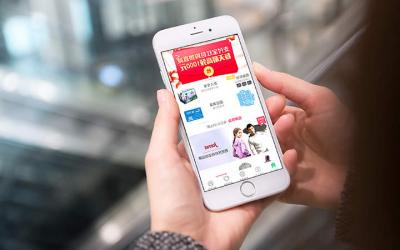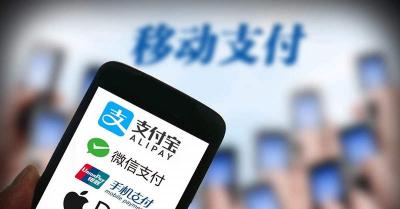Why Do Chinese People Like to Pay via Mobile Phone?
Nowadays in China traditional payment methods have gradually been replaced by mobile payments. From supermarkets or shopping malls to street vendors or public shared bikes, Chinese people can easily pay cashless by whipping out their smart phones and scanning a QR code to complete the deal. It has become so popular, in some occasions, if you use cash, maybe the small business owner might ask you to pay by smart phone as he doesn’t keep the change.

According to the statistics of China Internet Network Information Center, until March 2020, the number of mobile payment users in China has reached 765 million, an increase of 182 million from the end of 2018, accounting for 85.3% of mobile Internet users. Why mobile payment is so popular in China? This phenomenon has aroused the interests of journalists and researchers in and out of the country.
In other developed countries, people are more inclined to use bank cards or pay in cash. So why does Chinese people prefer to use mobile phones to pay? Here below are the major reasons:
1. The widely use of smart phone in China
China has the largest population of smart phone users in the world, which was estimated to reach more than 800 million in China. Thanks to the prominent capability of mass production, China mobile phone industry created 35.67 million unit shipments in 2018, including 33.62 m 4G phones. In 2021, 5G is a must, 90% of Chinese users hope their next smart phones should be 5G ones. The mass production makes smart phones in China really affordable to the people of different strata. With the great telecom infrastructure, all the cell phones can get good reception in different areas, even in the remote places. The 4G technology can facilitate the wide use of mobile payment and make it reliable and efficient. People simply scan a QR code with their mobile phone. Within the 4G network, it is just within a very short time to get connected with the servers of the fintech companies and response. In 1-3 seconds, the transaction is down. It is so easy and fast!In fact, two ways are available to pay via QR code in China:
a.The customer scans the seller’s QR code, which is very often placed at the checkout counters of the shops and restaurants, or at the hands of vendors. The customers are required to input the amount and click to pay on APP. Then the money is sent to the sellers’ account directly.
b.The customer can also select to show the QR code displayed on his own smart phone, and the seller scans it. In this way, the seller is supposed to type the amount into the system and charge the money from your account.
2. Scanning QR makes digital payments easy and fast
As a matter of fact, the QR (Quick Response) code technology was first invented by Japanese company Denso Wave in 1994 for the automotive industry, while Chinese developed it as a way to handle mobile payments. Digital payments are processed by scanning QR codes at the point of sales which link to the customer’s bank account. It was first introduced to China by Alibaba Group. Due to its overwhelming advantages on online shopping, the company had occupied most of the domestic market share of online payment.

The next question to Alibaba was how to get involved in offline payment, which was mainly done via cash or bank card at that time. Considering that 3G and 4G smart phones began to be widely used in the country. On July 1, 2011, Alipay officially launched the mobile APPs on Apple and Android phones, entering the domestic offline payment market with its secret weapon - the QR code service. Tencent, another internet giant of China, has the most popular messaging app in China with a monthly user base of more than 1 billion people. It published its new version WeChat 5.0, offering the QR code payment solution in 2013. Since the end of the year, there had been a 5-year-long intense campaign for the market share between Alipay and Wechat Pay. They did everything to promote the new payment method ubiquitously and acquire the new users through subsidies. Moreover, the battle between the two companies also fueled the innovations of their services to the customers. Therefore, in a short period, the two fintech companies gained not only millions of users, but brick-and mortar stores and retailers which accept the payment methods all over the country. Due to its convenience, more and more people feel comfortable to pay via mobile phone, instead of cash or bank card. Until 2019, the joint share of Alipay and Wechat Pay has reached 92.65% in the third-party e-payment market of China.
In February, 2016, Apply Pay stepped into the competitive arena of Chinese market. But it seemed that it could not fully satisfy the needs of Chinese customers and merchants. It lagged far behind in the country.
For those wishing to discover the real China on trips, you’re mostly encouraged to try Alipay and Wechat Pay via mobile phone.
3. Government encourages
The traditional government-owned banking system is not that innovative, and the pain points of market might easily be ignored. The long term goal of Chinese government is to boost domestic consumption and make it a new economic engine, instead of investment in the past. This is why the Government encouraged setting up a free flowing e-payment marketplace without restraint. Even though those fintech companies may pose some threat to the traditional banks, it can stimulate the consumptions and provide great convenience to the transactions between small businesses and their customers. The wide use of mobile payment has possibly made China a cashless society for most people in the urban districts as one mobile phone can get all things done. Recently more policies were issued to help the farmers and people living far away from cities can adopt the mobile payment.
In other countries, most of the banks are private ones, they may not allow the new fintech companies to invade their fields which generate great profit. Therefore, there are more barriers to create the new technology and payment method. Even if there are, they usually grow much slower and smaller, compared with their Chinese counterparts.
4. Chinese less frequently use credit card
The credit card system has been well developed in western countries for quite a long time. The first Chinese credit card was issued in 1985. But it is not so widely used as debit card possibly because of the traditional Chinese mindset, which is that most people tend not to owe others money in China. The old generations even don’t have any bank cards. Since everyone always carries his mobile phone when going out, and it can get things done, then why should they carry the wallet and cards with them? So when a Chinese checks out at a store, he or she would ask “do you take Alipay or Wechat pay?”, instead of “do you take credit cards?”. In your Alipay or Wechat account, you can also check your monthly and yearly bill at any time, all your payments via mobile phone have been recorded automatically. The inconvenience of using bank card makes Chinese customers more willing to embrace this new payment technology, this means many Chinese people have leapfrogged plastic, going straight from cash to mobile payment.
Trouble caused by mobile payment

Like any other new-born things, mobile payment also encountered some problems. As soon as the smart phones began to be sold on market, the Trojan horse malware emerged as well. Cybercriminals can steal the personal data and bank account information through mobile phone viruses, which causes security problems for the funds on mobile phones. Consumers have to be careful when scanning an unfamiliar QR code. At the same time, both of the two fintech companies like Alipay and Wechat get full hold of consumers’ information and data. If they can’t protect it very well, then the information could be leaked out. Even though most of Chinese don’t really care about their privacies, there are some potential risks of personal information security.
In the past few years, China government enacted a series of policies to regulate the operation of the fintech companies and ensure the security of customers’ accounts and assets.
You may also be interested in: